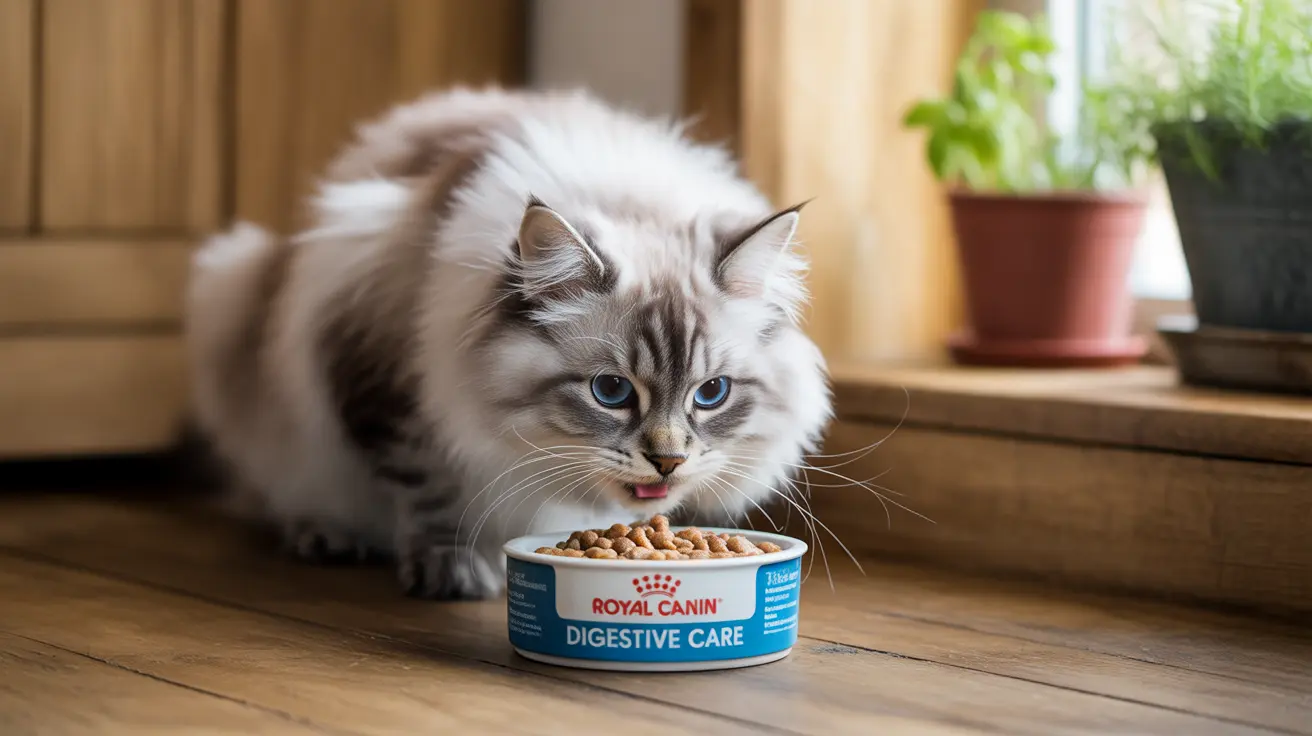Understanding Why Cats Vomit
Before selecting the best cat food for a vomiting cat, it's essential to understand the potential causes. Cats may vomit due to eating too quickly, food allergies, inflammatory bowel disease (IBD), or other underlying health conditions. Some cats develop sensitive stomachs that require specially formulated diets to maintain proper digestion.
Top Food Recommendations for Vomiting Cats
Wet Food Options
Wet food often proves easier for sensitive stomachs to digest and provides essential hydration. Leading options include:
- Royal Canin Digestive Care Thin Slices in Gravy
- Hill's Prescription Diet I/D Digestive Care
- Purina Pro Plan Veterinary Diets EN Gastroenteric Formula
- KOHA Limited Ingredient Diet Pâtés
Dry Food Selections
For cats who prefer kibble, these options are specifically formulated for sensitive stomachs:
- Purina ONE Sensitive Skin & Stomach
- Blue Buffalo Sensitive Stomach
- Hill's Science Diet Sensitive Stomach & Skin
- Merrick Purrfect Bistro Complete Care
Key Ingredients to Look For
The best cat food for cats that throw up should contain:
- High-quality, easily digestible proteins
- Limited ingredients to minimize potential triggers
- Prebiotics and probiotics for digestive health
- Natural fiber sources like pumpkin
- Essential fatty acids for gut health
- No artificial preservatives or common allergens
Feeding Tips and Strategies
Implementing proper feeding practices can help reduce vomiting episodes:
- Feed small, frequent meals throughout the day
- Use slow-feed bowls to prevent rapid eating
- Serve food at room temperature
- Maintain consistent feeding times
- Gradually transition to new foods over 7-10 days
When to Consult a Veterinarian
While dietary changes can help manage vomiting, certain situations require immediate veterinary attention:
- Frequent or prolonged vomiting
- Blood in vomit
- Lethargy or depression
- Significant weight loss
- Concurrent symptoms like diarrhea
- Dehydration
Frequently Asked Questions
What is the best cat food for cats that frequently vomit due to sensitive stomachs?
The best options are typically limited-ingredient wet foods like Royal Canin Digestive Care or Hill's Prescription Diet I/D. These foods are specifically formulated with easily digestible proteins and gentle ingredients to minimize stomach upset.
How can I choose a limited-ingredient diet to help reduce my cat's vomiting?
Look for foods with a single protein source, minimal ingredients, and no common allergens like wheat, corn, or soy. Start with novel proteins your cat hasn't eaten before, and monitor their response over several weeks.
Should I feed my vomiting cat wet food or dry food for better digestion and hydration?
Wet food is generally recommended for vomiting cats as it's easier to digest and provides essential hydration. However, if your cat strongly prefers dry food, choose a sensitive stomach formula and ensure plenty of fresh water is available.
What ingredients should I avoid in cat food if my cat has food intolerances causing vomiting?
Common ingredients to avoid include artificial preservatives, colors, and flavors, as well as common allergens like beef, dairy, wheat, corn, and soy. Some cats may also be sensitive to chicken or fish.
When should I consult a vet about my cat's vomiting and changing their diet?
Consult a vet if vomiting occurs frequently (more than once weekly), contains blood, or is accompanied by other symptoms like lethargy, diarrhea, or weight loss. Also seek veterinary guidance before starting any prescription diet.
Conclusion
Finding the best cat food for cats that throw up often requires patience and careful observation. Start with high-quality, limited-ingredient options, and work closely with your veterinarian to develop an appropriate feeding plan. Remember that every cat is unique, and what works for one may not work for another.
By selecting the right food and implementing proper feeding strategies, you can help reduce your cat's vomiting episodes and improve their overall digestive health.






